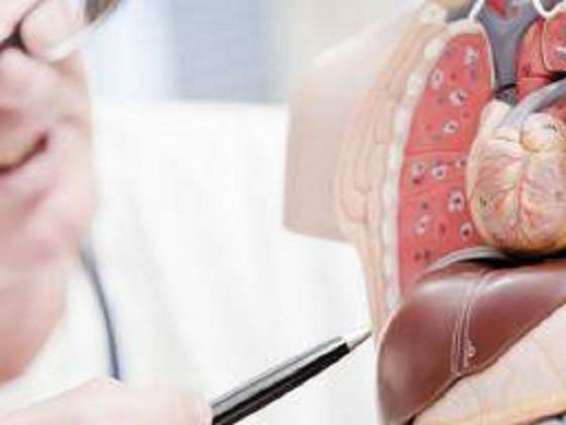Researchers found that strains of the gut bacterium Klebsiella pneumonia can raise a person's blood alcohol level in the absence of alcohol consumption
Islamabad (Pakistan Point News / Online - 20th September, 2019) Researchers found that strains of the gut bacterium Klebsiella pneumonia can raise a person's blood alcohol level in the absence of alcohol consumption. They link this to nonalcoholic fatty liver disease in mice and humans.Nonalcoholic fatty liver disease (NAFLD) is a common condition in which excess fat accumulates in a person's liver. A 2019 study in theJournal of Hepatology estimates the global prevalence of NAFLD to be around 25%.
In the United States, the National Institute of Diabetes and Digestive and Kidney Diseases (NIDDK), which is part of the Institutes of Health (NIH), puts the number of adults living with NAFLD at between 30 and 40%. They estimate the number of children aged 2-19 with NAFLD at close to 10%.The majority of people with NAFLD have simple fatty liver or nonalcoholic fatty liver (NAFL). This is the most common type and has no links with long term liver damage.
However, the NIDDK estimate that between 3 and 12% of adults have nonalcoholic steatohepatitis, or NASH, which is a more severe form of NAFLD.NASH is accompanied by inflammation in the liver, which can lead to long term scarring and liver cancer.It is not clear why some people develop simple fatty liver, and others develop NASH.A case of auto-brewery syndromeJing Yuan from the Capital Institute of Pediatrics in Beijing in China is the lead author of the study, which also includes collaborators from the academy of Military Medical Sciences, the Beijing Institute of Microbiology and Epidemiology, and the Chinese Academy of Sciences, also in Beijing.
In the research paper, Yuan and her colleagues describe the case of a man with auto-brewery syndrome.This rare condition occurs when a person's gut produces alcohol by fermenting carbohydrate rich foods. This so-called endogenous alcohol leads to a rise in blood alcohol even if a person has not been consuming alcoholic drinks.





